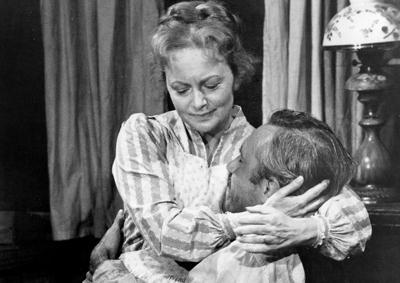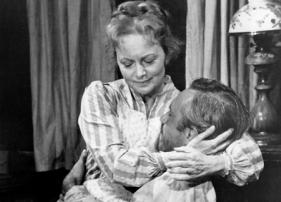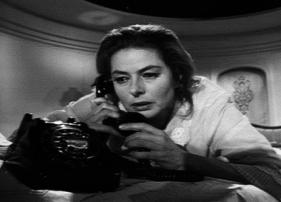“'Noon Wine' is superb evidence that Peckinpah understood the values and requirements of a tragic action outside the conventions of the traditional Western.” -- author John L. Simons
Directed by Sam Peckinpah
Five years after the final broadcast of CBS’ Playhouse 90 symbolically signaled the end of the “golden age of television,” ABC-TV announced plans for an ambitious new anthology, Stage 67, with an eclectic single-season slate of twenty-six programs across genres. ABC’s experiment was helmed by television impresario, Hubbell Robinson, best known as one of the original architects of Playhouse 90. In advance press for Stage 67, Robinson explicated his blueprint for the endeavor, stating, “[the series] represents a totally conscious and thought-out effort to organize a creative environment that will permit entertainment’s major talents to work for genuine excellence in television.” As evidenced by the critically-acclaimed productions, The Human Voice, starring Ingrid Bergman and Noon Wine, directed by Sam Peckinpah, Robinson’s noble goals for the ultimately short-lived Stage 67 were most certainly obtained, even though sustainable TV ratings were not. Underappreciated by the mass audience when originally broadcast, these obscure television productions are ripe for rediscovery today and stand as remarkably sophisticated beacons of quality in the outposts of the so-called “vast wasteland.”
Pioneering filmmaker Sam Peckinpah began his legendary career in television, honing his distinctive talents by working in various capacities on a number of series, including writing and/or directing episodes of the western classics Gunsmoke, The Rifleman, Zane Grey Theater, and the short-lived cult-favorite that he also created, The Westerner. Peckinpah’s string of creative successes in TV led to feature film assignments, with his second motion picture, the revisionist western Ride the High Country (1962) enjoying significant critical notice, including receiving the Grand Prix Award at the Belgium International Film Festival (selected in competition over Fellini’s 8½). However, by the end of production of his third film Major Dundee (1965), Peckinpah’s perfectionism, on-set temperament, and vocal distaste for studio intervention became nearly career-ending impediments. Abruptly fired only a few days into the shooting of The Cincinnati Kid (1965), (to be helmed instead by Norman Jewison), Peckinpah was labeled as “too difficult” by Hollywood and found himself essentially blacklisted over the next few years.
Despite warnings from numerous industry quarters, producer Daniel Melnick (of David Susskind’s esteemed Talent Associates production company) took a leap of faith and tapped the embattled Peckinpah for a return to television to adapt and direct Katherine Anne Porter’s celebrated novella Noon Wine for ABC’s Stage 67 anthology series. Set in turn-of-the-century Texas, Porter’s character-driven tale concerning a strange itinerant farmhand and the violent, tragic transformation of a struggling rural family proved perfectly suited to Peckinpah’s deft hand with morally-complex material. Starring acclaimed actors Jason Robards and Olivia de Havilland (in her television debut), the darkly poetic Noon Wine was an unqualified artistic and critical success on the small screen. Peckinpah’s exemplary work on the TV production garnered both Writer’s Guild and Director’s Guild Award nominations, helping to restore his reputation within the motion picture industry. His next feature film assignment would be the landmark western, The Wild Bunch (1969).
Mark Quigley
A Talent Associates Production. Producer: Daniel Melnick. Writer: Sam Peckinpah. Based on the short novel by Katherine Ann Porter. With: Jason Robards, Olivia de Havilland, Theodore Bikel, Per Oscarsson.
Digital Betacam, color. 90 min.
Preserved from the original 2” master. Video transfer at Research Video. Courtesy of Parmandisam, LLC.






 Mobile Navigation
Mobile Navigation



